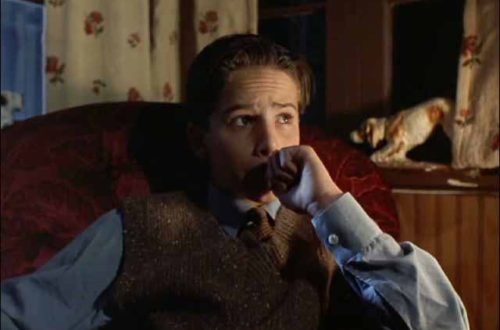I read that the blogger Heather Armstrong died yesterday. Struggling with depression and alcoholism, she committed suicide. Heather was 48 years old. She left behind two teenage daughters, 19-year-old Leta and 13-year-old Marlo. Yikes.
Many women claim that Armstrong helped to bring about the “warts and all” style of oversharing of Internet writing in the early 2000s. She was the harbinger of social media activist aggressive opining about life or whatever – Armstrong was acclaimed for her raw, angry, and honest writing on her blog. “Radical candor,” some called it; “inappropriate over-sharing,” others would say. By all appearances, Armstrong helped shape the ethos of online confessing, in the good and the bad. But she also exhausted herself, operated at the extremes (Armstrong used her life and family as fodder for her writing), and used the rocket fuel of anger in it all to burn brightly but briefly. When Armstrong was most popular, when she made large amounts of money through advertising on her blog, some $40k per month supposedly, she was living on borrowed time. In mining the self for profit via her blog, as a prototypical “influencer” online, she blurred the line between private and public. As such Armstrong was playing with fire. She would not escape unburned. But as a person who typifies early trends in “oversharing” in online writing, Heather is worth looking at more closely.
I didn’t even know Heather Armstrong existed, or her online blog. I found out about Armstrong only after she killed herself when I read her obituary in the newspaper. Our lives did not intersect.
But both Heather and I face the same challenges, as does everyone, in carving out a life for ourselves worth living. To be happy or not, to choose well or not; to carve happiness out of the raw marble which are the possibilities available, and to make our lives happy and meaningful. Some people go one way, others go another. Genetics and DNA, life circumstances and social context, personal choices and individual ability, not to mention patience and resilience and grit and a whole slew of other character traits. There are those who do well in their lives, and there are those who don’t. “Character is destiny,” claimed Heraclitus. So true.
Take Ludwig van Beethoven, for example. Beethoven is an amazing example, as Glenn Gould claimed, that the next note always sounds like it was exactly the best choice of what the music needed to have next. So true. Pianist Artur Schnabel claimed, “Mozart is a garden, Schubert is a forest in light and shade, but Beethoven is a mountain range.” I love that quote. But a mountain range covers quite a bit of ground: there are amazingly high highs and incredibly low lows. There is the Beethoven in his early days, when he saw happiness and beauty and possibility and playfulness, and that is reflected in music like this –
– and there is the later Beethoven, when he was disillusioned by life and was sick and not far from his end – the mood is heavy, self-involved, tense, conflicted, complicated — a mind turned in on itself in darkness and angst – check this out:
I often think about this dichotomy between the early and late Beethoven: joy and playfulness in the possibility of life and happiness in it, versus the heavy depressed no-way-out anxiety of a mind turned in at itself in despair. (The different places emotionally life can take a person: pain and despair.) Beethoven got worse in his life over time, not better, and by the end it was pretty bad; it was not going to get better. Beethoven is far from alone. Could I end up in that same dark no-exit cul-de-sac of depression at the end of my life? It scares me.
I hope to God I never get to such a terminal point in my life. Ludwig van Beethoven is a warning. Heather Armstrong is a warning. Elizabeth Wurtzel, in its own way, is a warning. Norah Vincent is a warning. Sylvia Plath is a warning. Virginia Woolf is a warning. Anthony Bourdain is a warning. Christian Baltazar Torrez, near where I live, from what I can tell, is a warning.
Maybe their premature deaths could have been avoided. Maybe not.
May we seek to avoid it, at all costs. I will hope for the opposite in my life.
And I hope the same for you, my dear reader.
And for everyone else, too.
It all makes me reflect about the very different places life can take a person in life: the good times, the bad times. About how so many grow so disillusioned and become so dark and hopeless as they get older, like Beethoven. If life is like an illness that hurts, and many see it that way, they become more and more “sick” of life over time. They are only too ready to depart the scene. Maybe that is the best option for them? Like with Nora Vincent?
I don’t know.
I hear some people claim that Heather Armstrong, or people like her, died of the disease of depression. It is no different than dying of diabetes or cancer, some argue. The same with alcoholism or drug addiction: they died of their disease, were VICTIMS of it. Severe depression and drug addiction are no different than Down’s Syndrome or Lou Gehrig’s Disease, or so the thinking goes.
I disagree. It is different. Depression surely can be and often is a disease of the brain, and to one extent or another everyone experiences and struggles with it; the chronically and acutely depressed suffer much more of it, and that is why they end up with the official diagnosis. But the individual does have the power to collaborate with therapists and doctors with medication, lifestyle choices, and social support to survive it. Depression is an eminently treatable disease when treated by medical professionals. The same dynamic is at play with ingesting drugs: nobody is forcing you to drug yourself. There is choice involved. Drug addiction or depression is not the same as you getting pancreatic cancer out of the blue and ending up dead within three months. “I took fentanyl and woke up laying on the concrete in front of a Vons supermarket at 3 am, revived from a drug overdose using Narcan.” This is different than, “They discovered a large tumor in my brain and four days later I woke up on a hospital gurney, recovering from cranial surgery and ready to start chemotherapy.” One truly is a victim, the other less so. There is an obvious element of self-destructiveness. There is a dark tinge of angst involved. Almost always we are talking about “difficult people.”
You do come across people like Beethoven occasionally, people who are “difficult” at best, and an “obnoxious pain in the ass” at worst. Ludwig von Beethoven might have made wonderful music, but by all accounts he was a horrible person. Dead at 56-years of age, Beethoven lived almost too long.
For my part, I try to avoid “difficult people.” Most do. Life is difficult enough without the angry and discomfited types making it worse. I once heard this lady claim that “difficult” women like her are totally worth it in the end, if you have enough patience. I never could see why.
To be angry, and to be so perpetually, is akin to allowing yourself to be poisoned. It is a personal failing, an inability to control oneself, as I see it. Life is too short to allow the mind to turn inward in angry self-loathing, in my opinion. Some people nurse their anger, as if it were an energy source to mine towards powering their life. Anger might be a sort of explosive rocket fuel which could give you short-term energies, but it will burn you up from the inside out. Anger, even when directed away from yourself, towards an external target, damages you worse than anyone or anything else. (Have you not read the story of Captain Ahab and his white whale? Did you flunk high school?) Sir Francis Bacon claimed “losing it” and allowing oneself to be controlled by their rage put it thusly,
“Whoever is out of patience, is out of possession of his soul.”
So true.
Anger and rage are exactly the problem; ego is the enemy. I often try to remind myself of this. “Ego is the enemy, Richard. Remember ego is the enemy.” In contrast, stoicism and calm are friends: they are the ideal. That is solid ground to plant one’s feet on. Then there are other virtues. Patience. Resilience. Not to be a pain in the ass. Kindness. Hope, despite everything. Work. Discipline. To take things with grace. To be able to let it go. To take the long view.
This seems so counter-cultural nowadays. So many Americans are so angry, and they embrace the rage and give it full sway. Many in the culture seem to encourage anger, as if it would save a person. I would think this behavior typical of teenagers or young adults immature in their emotional self-regulation. But many “adults” today seem to embrace it. That is why, in an essay two weeks ago, I claimed that one used to encounter adults in America but not so much anymore. Heather Armstrong seems a great symbol of this giant throbbing Thanatos of anger, self-loathing, and self-destruction – so extreme and so over-the-top. Donald Trump also comes to mind: a person without limits who is likely to do or say anything, who has no shame. Messy. Extremists. Edgy types. Andrew Breitbart. Elizabeth Wurtzel. Anthony Bourdain. So it goes.
I hope Heather Armstrong has some semblance of peace now that she is dead, having apparently enjoyed so little of it in life. And I hope her children and loved ones find solace where they can. But to have someone close to you, not to mention your mother, take her own life in this way, it bodes poorly for the future – like the taste of ashes and defeat in your mouth, forever.
But if our ability to hurt ourselves and others is amazingly in evidence, so is our capacity for forgiveness and healing, if one is open to it and lucky enough to find it. If you look around, that reality is much in evidence, too.
So I will choose to focus on the possibility of recovery and resilience this evening as I write this, rather than Heather Armstrong’s daughters living with the legacy of their mother’s difficult life and final suicide – the taste of pain, despair, death – tart, bitter, and forever.

(1975-2023)






2 Comments
Skyler
What about Beethoven’s Ninth Symphony for happy music? “Ode to Joy”? Isn’t that evidence of Beethoven’s state of mind near the end?
rjgeib
No. The Ninth is wildly joyful, in my opinion. I don’t trust that kind of “joy.” It is immoderate. Wild joy is kissing cousin to abject despair.